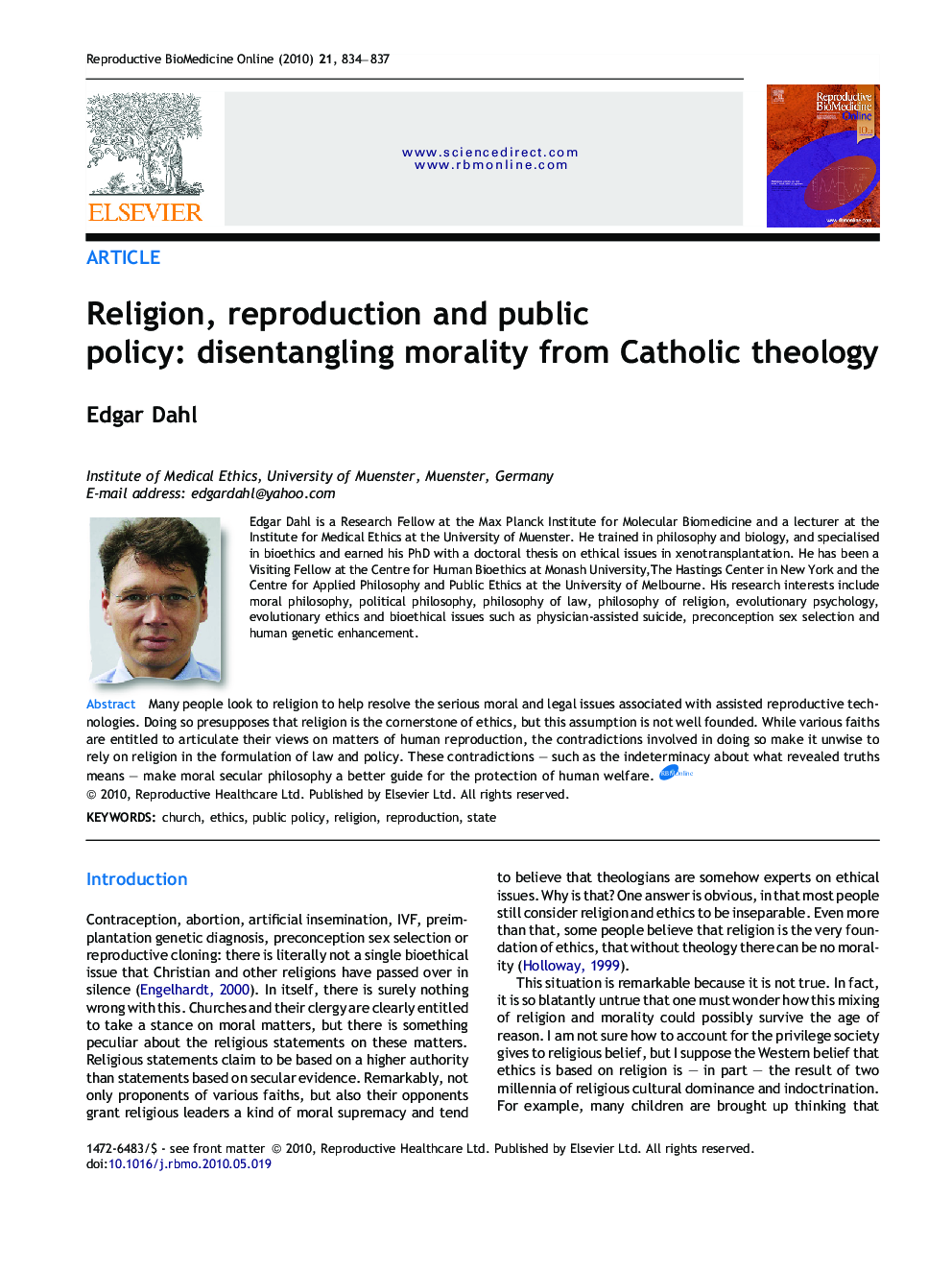| Article ID | Journal | Published Year | Pages | File Type |
|---|---|---|---|---|
| 3971493 | Reproductive BioMedicine Online | 2010 | 4 Pages |
Many people look to religion to help resolve the serious moral and legal issues associated with assisted reproductive technologies. Doing so presupposes that religion is the cornerstone of ethics, but this assumption is not well founded. While various faiths are entitled to articulate their views on matters of human reproduction, the contradictions involved in doing so make it unwise to rely on religion in the formulation of law and policy. These contradictions – such as the indeterminacy about what revealed truths means – make moral secular philosophy a better guide for the protection of human welfare.Many people look to religion to help resolve the serious moral and legal issues associated with assisted reproductive technologies. Doing so presupposes that religion is the cornerstone of ethics, but this assumption is not well founded. While various faiths are entitled to articulate their views on matters of human reproduction, the contradictions involved in doing so make it unwise to rely on religion in the formulation of law and policy. These contradictions – such as the indeterminacy about what revealed truths means – make moral secular philosophy a better guide for the protection of human welfare.
